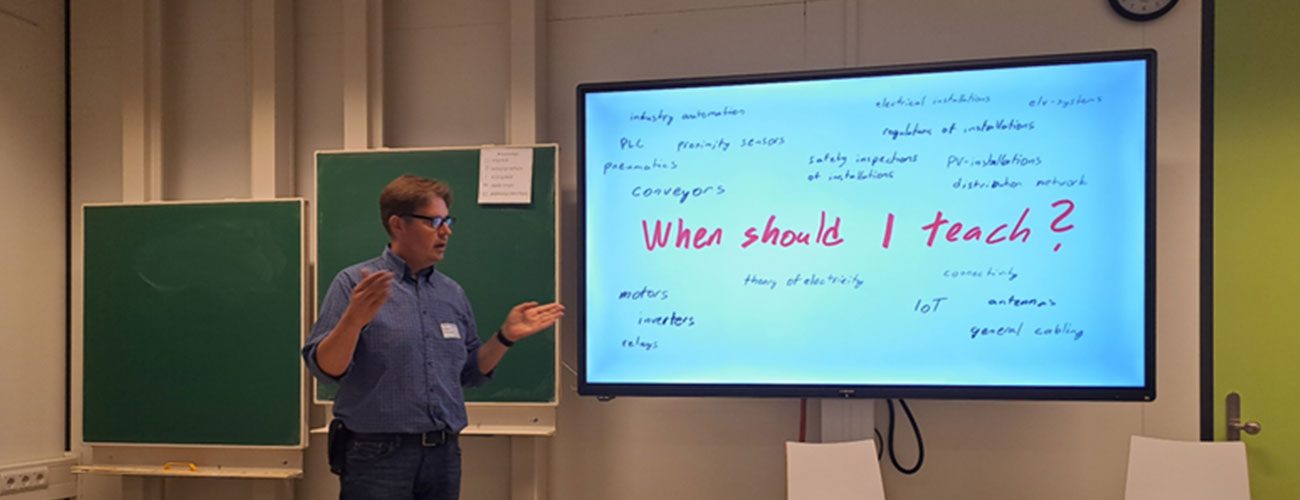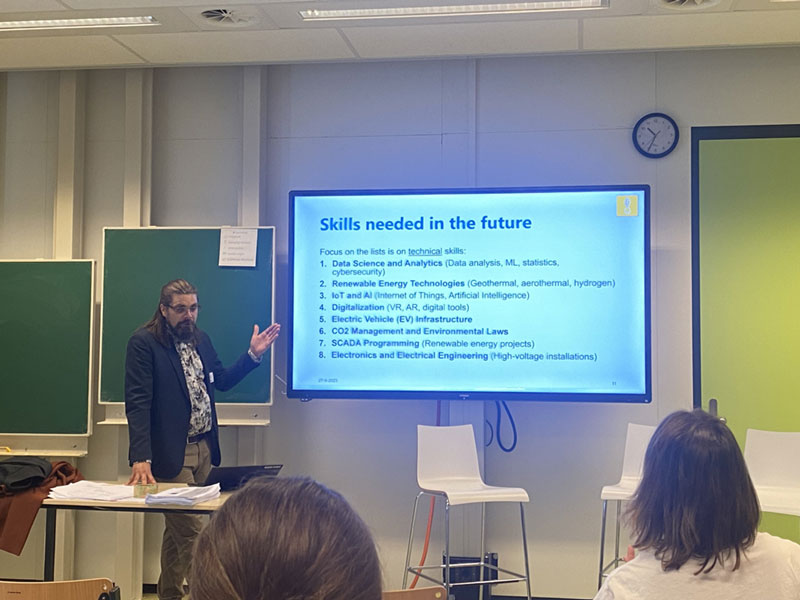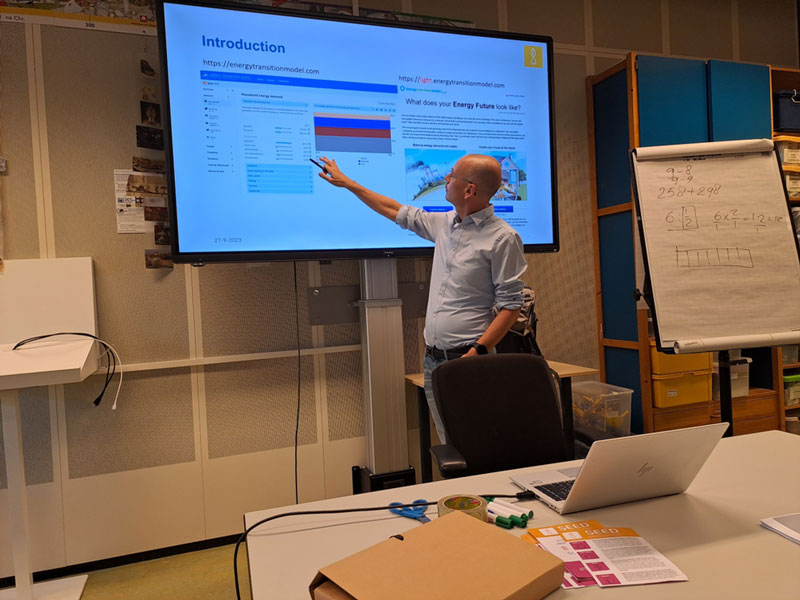In September 2023, the second Skills Workshop marked the culmination of Work Package 2 (WP2), following the kick-off event in Turku back in October 2022. The workshop was a vital component of our ongoing initiatives, including in-depth skills scans and collaborative projects.
Our workshop was graced by the presence of university and VET teachers from different regions, as well as dedicated project staff, creating an enriching environment for the exchange of ideas and expertise.
The workshop was divided into two key sessions. The morning session was an opportunity to unveil the intriguing findings from our regional skills scans. The main conclusions from the study were that employers prioritize generic skills over technical ones, recognizing the trainability of the latter. Emphasizing the practical application of theoretical technical skills is essential, and digital skills hold considerable importance as a horizontal force. These insights lay a solid foundation for shaping solutions and regional strategies in SEED.
In addition to presenting the results, the stage was given to handful of teachers from different regions to share their grass-roots best practices on skills development in sustainable energy.
- Semih Severengiz, from Bochum University of Applied Sciences, shared intriguing insights about their problem-based learning approach, illustrating it with real-life assignments from collaborating companies.
- Athina Krestou, representing the University of Western Macedonia (Greece), discussed a cooperative model they’ve been successfully practicing with a local distribution network operator, providing valuable hands-on training experiences.
Teemu Tuomela, an educator at Raseko, outlined their VET school’s educational philosophy and methodology, emphasizing the role of videos in enhancing practical VET training.
The afternoon session was the core of our event, with a deep dive into three fundamental skill categories: soft skills, green skills, and digital skills. These sessions adopted a ‘train the trainer’ approach, equipping educators with practical tools and teaching strategies to pass on these crucial skills to their students.
The first session shed light on Innopeda, an innovation pedagogy approach developed at Turku University of Applied Sciences. It focused on innovation competences, prompting each participant to reflect upon and assess their own competencies.
In the second session, Martijn Rietbergen introduced the Energy Transition Model, a free simulation tool developed in the Netherlands. This tool allows for the easy simulation of various energy system scenarios and conveniently includes the basic energy systems models of each COVE SEED country.



